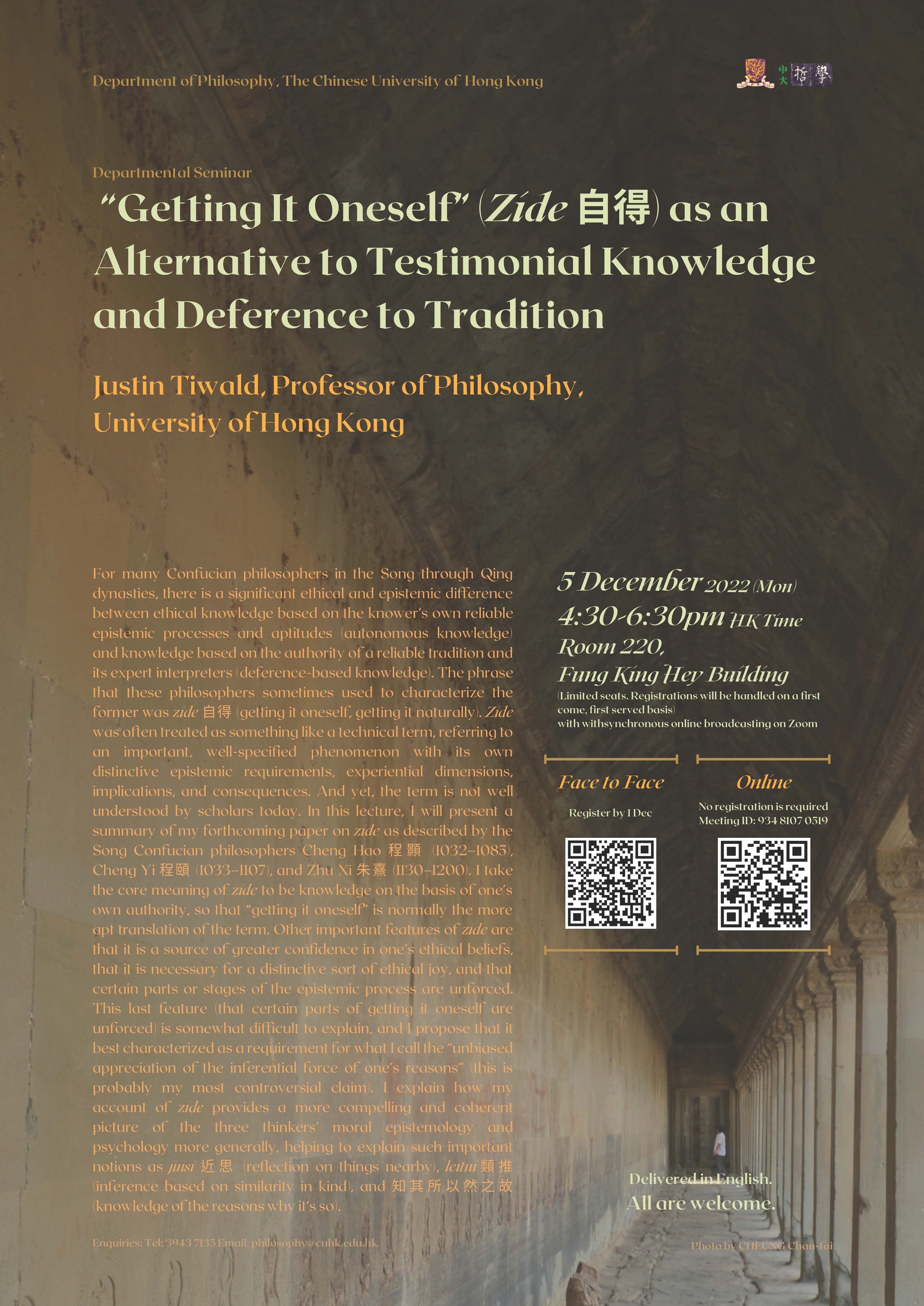“Getting It Oneself” (Zide 自得) as an Alternative to Testimonial Knowledge and Deference to Tradition (Departmental Seminar)

Prof. Justin Tiwald |
|
4:30pm-6:30pm HK Time |
|
Room 220, Fung King Hey Building with synchronous online broadcasting on Zoom |
Limited seats for face-to-face seminar. Registrations will be handled on a first come, first served basis
Register to the Face-to-Face Seminar by 1 Dec 2022:
https://cloud.itsc.cuhk.edu.hk/webform/view.php?id=13659141
Link to Online Seminar (No registration is required):
https://cuhk.zoom.us/j/93481070519
Abstract:
For many Confucian philosophers in the Song through Qing dynasties, there is a significant ethical and epistemic difference between ethical knowledge based on the knower’s own reliable epistemic processes and aptitudes (autonomous knowledge) and knowledge based on the authority of a reliable tradition and its expert interpreters (deference-based knowledge). The phrase that these philosophers sometimes used to characterize the former was zide 自得 (getting it oneself, getting it naturally). Zide was often treated as something like a technical term, referring to an important, well-specified phenomenon with its own distinctive epistemic requirements, experiential dimensions, implications, and consequences. And yet, the term is not well understood by scholars today. In this lecture, I will present a summary of my forthcoming paper on zide as described by the Song Confucian philosophers Cheng Hao 程颢 (1032–1085), Cheng Yi 程颐 (1033–1107), and Zhu Xi 朱熹 (1130–1200). I take the core meaning of zide to be knowledge on the basis of one’s own authority, so that “getting it oneself” is normally the more apt translation of the term. Other important features of zide are that it is a source of greater confidence in one’s ethical beliefs, that it is necessary for a distinctive sort of ethical joy, and that certain parts or stages of the epistemic process are unforced. This last feature (that certain parts of getting it oneself are unforced) is somewhat difficult to explain, and I propose that it best characterized as a requirement for what I call the “unbiased appreciation of the inferential force of one’s reasons” (this is probably my most controversial claim). I explain how my account of zide provides a more compelling and coherent picture of the three thinkers’ moral epistemology and psychology more generally, helping to explain such important notions as jinsi 近思 (reflection on things nearby), leitui类推 (inference based on similarity in kind), and 知其所以然之故 (knowledge of the reasons why it’s so).
Delivered in English.
All are welcome.




